
Historian and Tudor Life Magazine editor Gareth Russell will be joining us in the chatroom for a live chat at 11pm UK time on Friday 16th December.
[Read More...]
Historian and Tudor Life Magazine editor Gareth Russell will be joining us in the chatroom for a live chat at 11pm UK time on Friday 16th December.
[Read More...]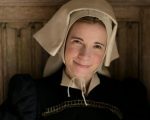
For those of you interested in the new BBC series “Six Wives with Lucy Worsley”, I found the first episode, which was aired last night (7th December) on YouTube
[Read More...]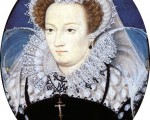
On this day in history, 8th December 1542, Elizabeth I’s nemesis, Mary, Queen of Scots, was born at Linlithgow Palace in Scotland.
Mary, Queen of Scots was the daughter of James V of Scotland and his second wife, Mary of Guise, and the granddaughter of Margaret Tudor (Henry VIII’s sister) and James IV of Scotland. On the 14th December, when she was just six days old, Mary became Queen of Scotland after her father died of a fever. She was crowned Queen on 9th September 1543 at Stirling Castle. As Mary was a baby, James Hamilton, 2nd Earl of Arran, acted as regent until 1554 when he surrendered the regency to Mary’s mother, Mary of Guise, who acted as regent until her death in 1560.
[Read More...]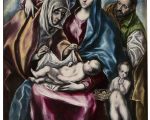
Today, many countries around the world celebrate the Feast of the Immaculate Conception. This feast day does not celebrate the immaculate conception of Jesus Christ, which is known as “the Virgin Birth”, but instead celebrates the immaculate conception of his mother, the Virgin Mary, in the womb of her mother, St Anne. Mary’s immaculate conception meant that she was conceived free of the taint of original sin, unlike other women.
[Read More...]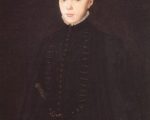
As today is the traditional date given for the birth of Henry Stewart (Stuart), Duke of Albany and Lord Darnley, I thought I’d share this excerpt from On This Day in Tudor History.
Henry Stewart, Lord Darnley, was the son of Matthew Stewart, 13th or 4th Earl of Lennox, and Lady Margaret Douglas, and the grandson of Margaret Tudor and her second husband Archibald Douglas, 6th Earl of Angus. He was born at Temple Newsam, Yorkshire, not long after the death of his older brother, also called Henry. Darnley is known for being the second husband of Mary, Queen of Scots and for being murdered on 10th February 1567.
[Read More...]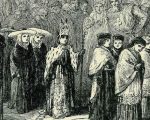
The 6th December was and is the feast of St Nicholas, or St Nicholas of Myra, the 4th century Bishop of Myra (modern-day Demre in Turkey), who is the patron saint of children, as well as sailors, merchants, archers, repentant thieves, brewers, pawnbrokers and students. In medieval and Tudor times, it was traditional for a choirboy to be chosen on 6th December or Childermas (Holy Innocents’ Day) as “Boy Bishop” to act as bishop and to lead processions around communities, collecting money for the church and parish funds, and to lead some religious services.
[Read More...]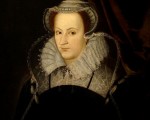
5th December:
1556 – Birth of Anne de Vere (née Cecil), Countess of Oxford, daughter of William Cecil, 1st Baron Burghley, and his second wife, Mildred (née Cooke), and wife of Edward de Vere, 17th Earl of Oxford. The marriage was not the happiest of matches, with de Vere refusing to acknowledge their daughter Elizabeth as his. The couple were eventually reconciled.
1558 – Death of Gabriel Dunne (Donne), Abbot of Buckfast and ‘keeper of the spiritualities’, in the diocese of London. He was buried at St Paul’s, before the high altar.
1560 – Death of King Francis II of France and King Consort of Scotland as husband of Mary, Queen of Scots. Francis was aged just fifteen when he died from some type of ear infection. He was succeeded as King of France by his brother, Charles, who became Charles IX. Francis was buried at the Cathedral Basilica of Saint-Denis on 23rd December.
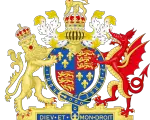
How much do you know about the mottoes of monarchs and their consorts? Test yourself with this fun quiz.
[Read More...]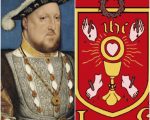

I was lucky enough to be given a bagful of quinces by some friends so I decided to look in my medieval and Tudor recipe books for some quince recipes and found this one. I hope you enjoy it and do let me know if you try it and what you think. It really is delicious and is disappearing fast in our household.
[Read More...]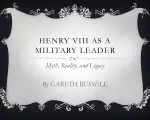
Gareth Russell discusses the successes and failures of Henry VIII as a military leader, leading to some interesting and damning conclusions.
[Read More...]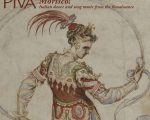
I know many of you enjoy Jane Moulder’s articles on Renaissance music in Tudor Life magazine, so I wanted to share with you this press release for Jane’s group’s brand new CD “Morisco!”. It’s not available as a digital download yet, but you can buy the CD from the Piva website.
[Read More...]